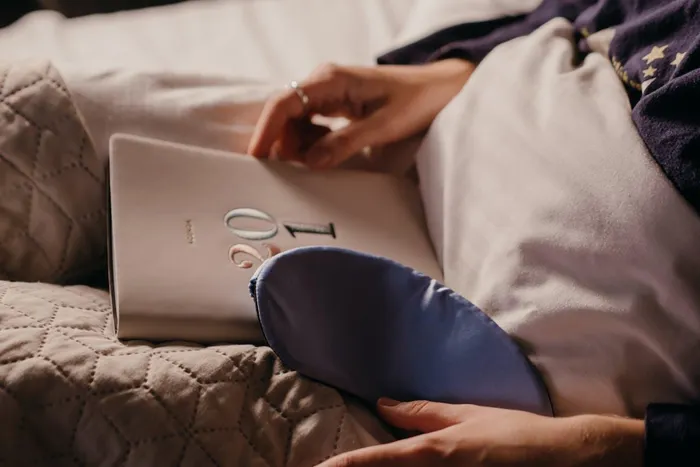Why South Africans are redefining wellness: a shift towards authentic self-care
WELLNESS

Explore wellness apps or mindfulness tools to support your mental and physical health on your terms.
Image: Nutrisense Inc /pexels
Before the pandemic, wellness often felt like a luxury or, worse, an afterthought.
Burnout was glorified as a sign of ambition, therapy was whispered about in secrecy, and “doing it all” was the unspoken standard.
For many South Africans, wellness was something you turned to only in a crisis.
But five years after Covid-19 upended the world, something has shifted. While the world remains tough, rising living costs, load-shedding fatigue, and escalating mental health challenges affect people, especially younger generations, who are softer.
And that softness isn’t weakness; it’s a quiet rebellion against survival mode.
Younger South Africans, particularly Millennials and Gen Z, are leading this charge. A 2023 survey found that 55% of these generations have sought therapy, with 40% actively pursuing it in 2024.
Compared to Baby Boomers, only 11% have done so since the pandemic began. This shift reflects a growing cultural movement: the pursuit of wholeness over wealth, connection over competition, and designing lives instead of simply managing crises.

Wellness is within reach, and it starts with small, intentional changes.
Image: Nataliya Vaitkevich/Pexels
Wellness is no longer confined to spa days or luxury retreats. It has stepped into the real world, becoming proactive, personal, and deeply relevant to how we live today.
A new kind of self-care
In 2020, wellness was largely reactive. Today, it’s about prevention and intentional choices. South Africans are finding wellness in everyday moments, such as sunset walks with friends and meaningful conversations, and prioritising their mental and physical health.
A Global Nature Survey recently revealed that South Africans spend more time outdoors than any other nation, with over 92% of global respondents prioritising time in nature.
These moments of connection with the natural world are more than a trend; they’re a lifeline in an increasingly demanding world.
Wellness has also expanded to include the basics, sleep routines, step counts, healthy relationships and open conversations about mental health.
In group chats, people are swapping therapy tips instead of pretending everything is fine. There’s a collective shift toward normalising mental health struggles and seeking real, actionable tools to address them.
But the reality is that one in six South Africans lives with anxiety, depression, or substance abuse. Public access to mental health care remains limited, with only one psychologist per 100 000 people in the state system.
This gap has driven more people to turn to technology for help. A personalised approach helps individuals prioritise their mental and physical health, while also benefiting businesses.
With the rise of digital tools, wellness is now more accessible than ever before, says Jaco Oosthuizen, managing director and co-founder of YuLife South Africa. South Africans don't need more apps that push users to extreme fitness goals, we encourage people to embrace wellness at their own pace.

Wellness has also expanded to include the basics, sleep routines, step counts, healthy relationships and open conversations about mental health.
Image: Polina /pexels
Given the prominent place of social media in our lives today, it’s not surprising that so many people want to share the habits, activities, and practices they use in their daily pursuit of physical, spiritual, emotional, and mental wellness.
Whether in tweets, Facebook posts, or Instagram photos, many want to share their improvements and advice with others.
In some cases, however, this desire to share experiences can turn into a need to “perform” one’s wellness. This can become a hindrance, overshadowing the initial goals those habits, activities, and practices were meant to serve (Well+Good, 2018).
“Prioritising wellbeing isn’t just the human thing to do; it’s a smart, sustainable business move,” Oosthuizen adds. Rising healthcare costs, preventable conditions, and drops in productivity all take a toll on companies.
Supporting employee wellness is no longer a “nice-to-have”; it’s essential.
A cultural reset
This new era of wellness indicates a critical cultural reset, a collective exhale after enduring years of chronic stress. So, what does this mean for you? The message is simple yet transformative: wellness is within reach, and it can begin with small, intentional changes.
The takeaway is simple but powerful: wellness is within reach, and it starts with small, intentional changes. Here’s how you can embrace this new era of self-care:
1. Take it outside: Spend time in nature. Whether it’s a walk in the park or a hike, being outdoors can lower stress and boost your mood.
2. Sleep smarter: Prioritise a consistent sleep routine. Rest isn’t just important, it’s foundational to your overall well-being.
3. Talk about it: Share your mental health journey with trusted friends or family. Normalising these conversations helps break the stigma.
Explore wellness apps or mindfulness tools to support your mental and physical health on your terms. Health sometimes is in the choices we make, the boundaries we set, and the moments we create for ourselves.